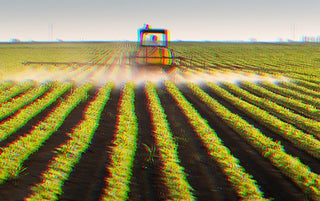WE VOTE WITH OUR PURCHASES.
Yet, there is still a serious issue with our food system that cannot be ignored. A staggering 90% of foods sold in grocery stores should not be eaten. These products are often laden with artificial ingredients, preservatives, and chemicals that can negatively impact our health. When we buy these items, we’re not just filling our carts; we’re casting a vote for a food system that prioritizes profit over well-being. Remember, you vote by what you buy.
Recently, I was frustrated when I heard that PepsiCo bought Siete Foods. Over 10 years ago, I made a conscious choice to not support large food manufacturers, believing in the value of family-run alternatives like Siete. The problem today, however, is that more and more of these healthier brands are being bought out by the big food giants- and I started to wonder if I can still hold my ground on avoiding the big giants.
I found myself reflecting, "Can you blame them?"—after all, the allure of significant financial backing is tempting (I mean, would you say no to $1.2 billion?) But I truly question whether the integrity of these products remains intact after such acquisitions. In my experience, I've seen changes typically occur within five years post-acquisition, leading to a decline in quality and commitment to the original values.
However, IF they product integrity stays with brands like Siete foods, then the positive is that more of these healthier foods options will be sold in more locations for more people to have easier access to better options.
These acquisition trends is a clear sign that consumers are increasingly seeking out brands that align with their values and health goals. The market is responding to a demand for better food options, yet many still find themselves trapped in the cycle of unhealthy eating due to convenience and marketing tactics.
It’s time to get real about what’s on our plates. The premium price tag on organic foods does not automatically guarantee that they are devoid of harmful substances. Understanding where our food comes from and how it is produced is crucial. Transparency in the food industry is essential for making informed choices.
So, what can we do? Start by getting the dirt—literally. Dig deeper into the practices of the brands you support. Research their sourcing methods, ask questions, and demand transparency. By holding companies accountable, we can begin to shift the narrative around food production and consumption.
Let’s stop being delusional about the state of our food system. It’s time for consumers to be empowered with knowledge, advocate for genuine change, and prioritize real solutions that ensure the health of both our bodies and the environment.











![How Does FULVIC Acid Work? [UNDERGROUND]](http://mettlefactor.com/cdn/shop/articles/MF_Website_Banners-6.png?v=1729117714&width=320)